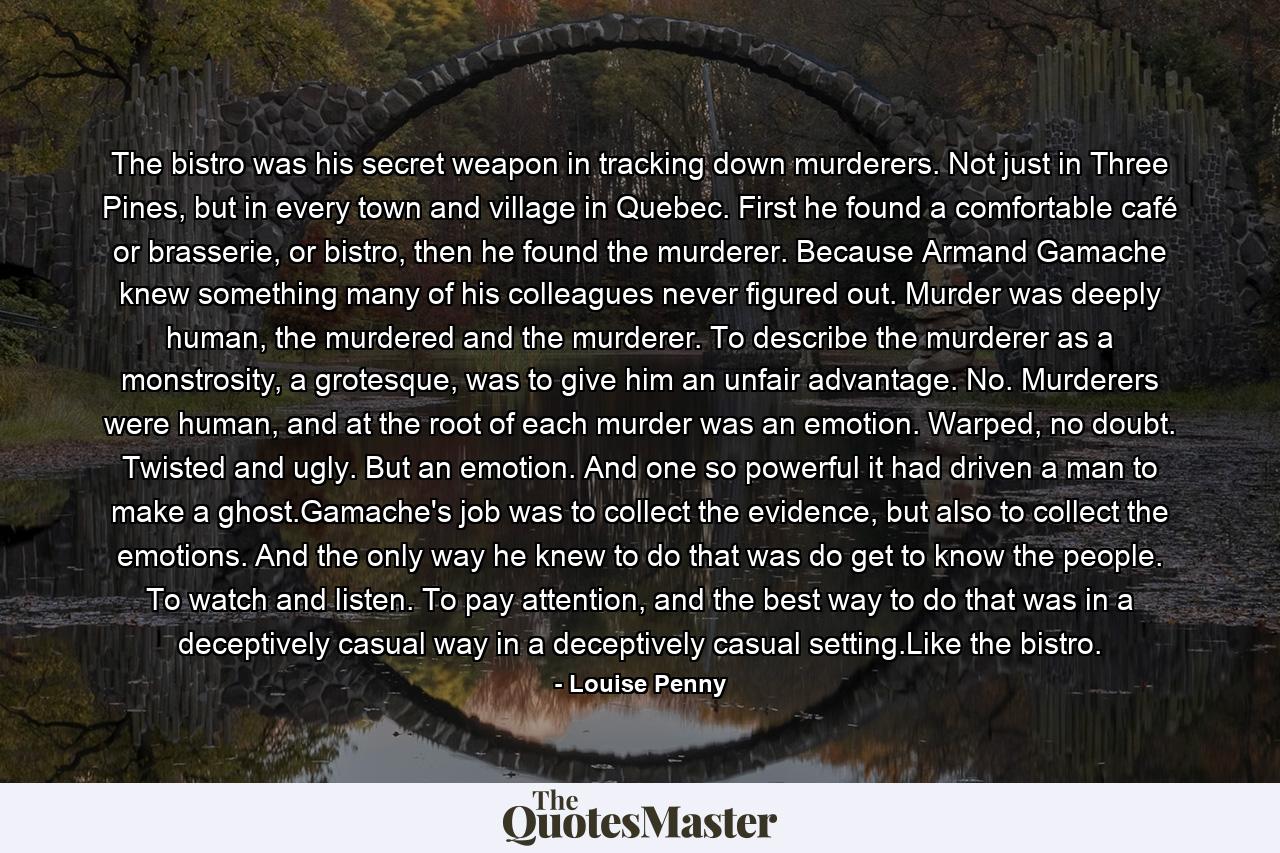The bistro was his secret weapon in tracking down murderers. Not just in Three Pines, but in every town and village in Quebec. First he found a comfortable café or brasserie, or bistro, then he found the murderer. Because Armand Gamache knew something many of his colleagues never figured out. Murder was deeply human, the murdered and the murderer. To describe the murderer as a monstrosity, a grotesque, was to give him an unfair advantage. No. Murderers were human, and at the root of each murder was an emotion. Warped, no doubt. Twisted and ugly. But an emotion. And one so powerful it had driven a man to make a ghost.Gamache’s job was to collect the evidence, but also to collect the emotions. And the only way he knew to do that was do get to know the people. To watch and listen. To pay attention, and the best way to do that was in a deceptively casual way in a deceptively casual setting.Like the bistro.
